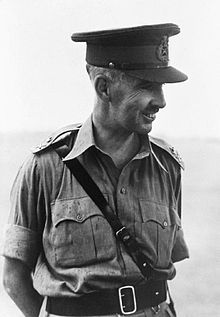
British army general who commanded in Malaya in 1941 and 1942. Born at Aspenden, Herts, on 26 December 1887, Arthur Percival was educated at Rugby School. He was in business in London from 1907 to 1914 and joined the British army as a private at the beginning of World War I, progressing through the ranks in the course of his career to general. He fought in France in 1915, was wounded in 1916, and won two Distinguished Service Orders and the French Croix de Guerre. He was also promoted to captain.
After the war, Percival served in north Russia and in Ireland (1920-1922), where he was mentioned in dispatches twice and received an Order of the British Empire award. He attended Staff College at Camberley and served in Nigeria. He also attended the Imperial Defence College course in 1935. Percival won promotion to lieutenant colonel in 1932 and to colonel in 1936. Percival then served two years (1936-1938) in Malaya as a staff officer. He returned to Britain to take charge of Aldershot in 1938 and 1939. Promoted to brigadier general in 1939, Percival assumed command of the 43rd Division of the British Expeditionary Force in France. Following the Dunkerque evacuation (May-June 1940), he had charge of the 44th Division in Britain.
Largely because of his previous service there, Lieutenant General Percival took command of British forces in Malaya in July 1941. British defenses in the area depended on controlling the sea and air. His defenses inadequate, Percival requested six additional divisions and extra air support. Although he only received two and a half poorly trained divisions, Percival did little to prepare for an invasion, especially in training his men.
Japanese forces commanded by Yamashita Tomoyuki invaded Malaya in early December 1941, and on 27 January 1942 Percival ordered a general withdrawal from the Malay Peninsula to Singapore Island. Percival rejected suggestions that the British construct defensive positions on the northern side of the island because he feared this would adversely affect the morale of his troops and civilians. The Japanese invaded Singapore proper in early February 1942 and drove back the unprepared British forces. British Prime Minister Winston L. S. Churchill demanded Percival hold the island to the last, but the water supply was dangerously low and the defenses inadequate. Although British troops outnumbered the Japanese forces, who were also racked by disease, on 15 February 1942, Percival was bluffed into surrendering, in large part to spare civilian casualties. In Britain’s most humiliating defeat of the war-some would argue in its history-130,000 British, Australian, Indian, Malay, and local troops became prisoners of the Japanese.
Percival spent the next four years as a prisoner of war. On the defeat of Japan, he was released from captivity in Malaya and brought to Tokyo to witness the formal Japanese surrender on board the battleship Missouri on 2 September 1945. Percival retired from the army in 1946. He published The War in Malaya in 1949. He died in London on 31 January 1966, a broken man.
References Falk, Stanley L. Seventy Days to Singapore. New York: G. P. Putnam’s Sons, 1975. Kinvig, Clifford. Scapegoat General: Percival of Singapore. Washington, DC: Brassey’s, 1996. Percival, Arthur E. The War in Malaya. London: Eyre and Spottswoode, 1949. Smith, John. Percival and the Tragedy of Singapore. London: Macdonald, 1971